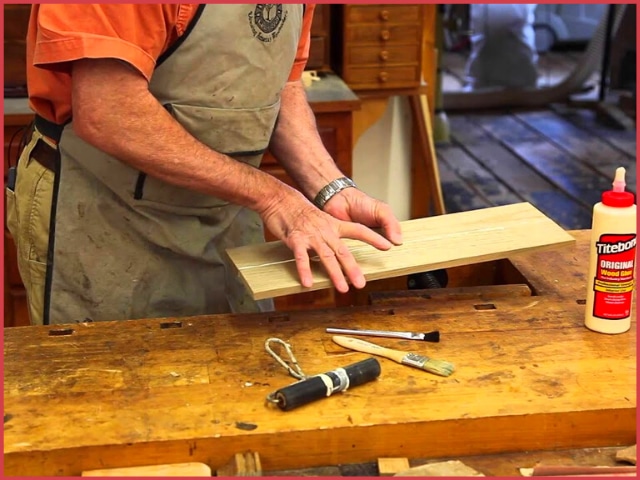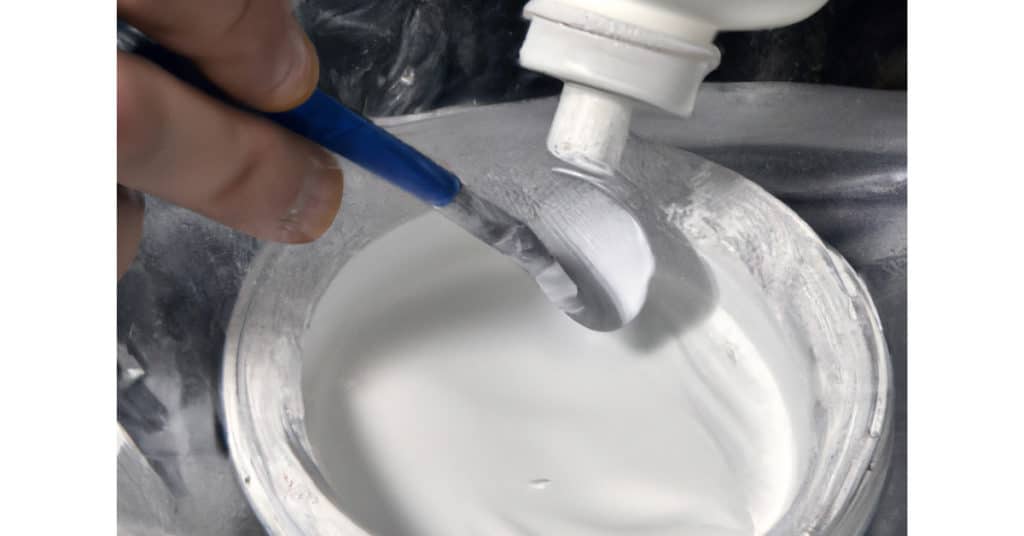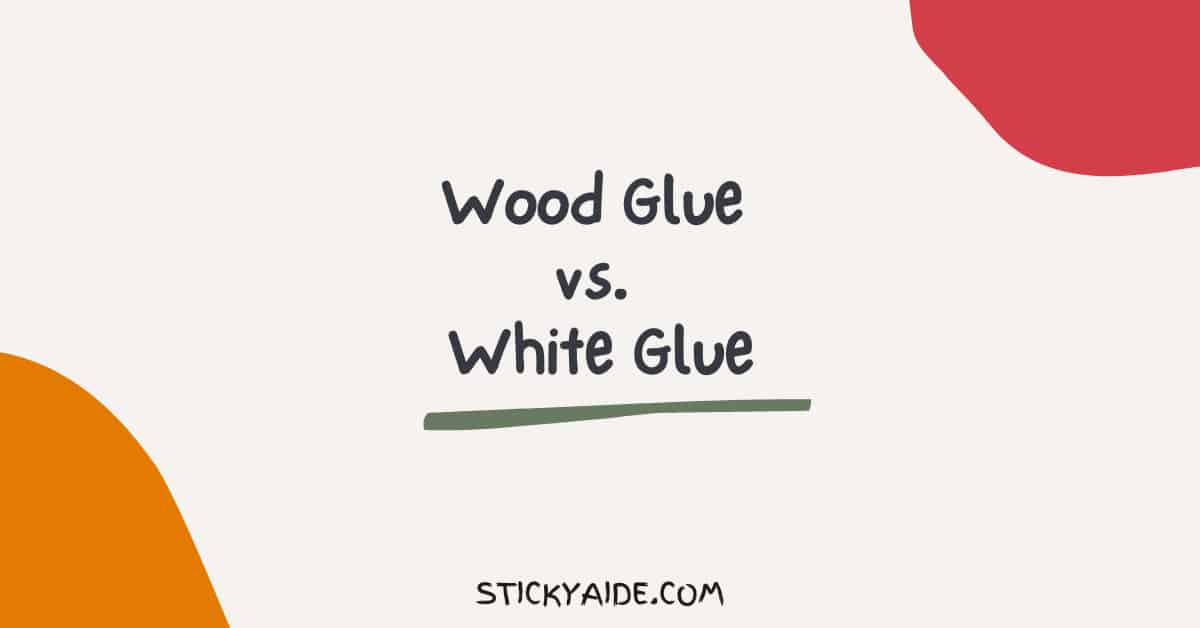By now, many of us have discovered the wonder of wood glue. Since the dawn of DIY, wood glue has been used to create incredible pieces of furniture and other household items.
But how does wood glue compare to white glue? That’s what we’re here to find out! In this article, we’ll break down the basics of white and wood glues and then look at a few specific uses where each type might be preferred.
Read More: Titebond 3 vs. Gorilla Wood Glue vs. Ultimate
Wood Glue Vs. White Glue
What is Wood Glue?
Wood glue is a type of adhesive used to join pieces of wood together. It is made from various natural and synthetic materials, including resins, polymers, and latexes.
Unlike other adhesives, wood glue is explicitly designed for use with wood and will not damage the material.
Read More: Clear Glue vs. White Glue
What is White Glue?
White glue, also known as PVA glue, is synthetic adhesive. It’s made from polyvinyl acetate; a plastic resin derived from petroleum. White glue is one of the most common type of adhesive used in woodworking and other crafts. It’s inexpensive and easy to find, and it dries clear.

Applications of Wood Glue
- Wood glue is perfect for bonding wood to wood.
- It can be used on hardwoods, softwoods, and particle boards.
- If you need to fill a gap between two pieces of wood, wood glue is your best bet.
- Wood glue is also great for veneering and laminating.
- It dries clear so that it won’t mar the finish of your project.
- Finally, wood glue is stronger than white glue, so it’s perfect for projects with a lot of wear and tear.
Read More: CA Glue vs. Wood Glue
Applications of White Glue
- As an all-purpose adhesive, white glue is ideal for repairing household items like broken vases and loose door knobs.
- It can also be used for art projects, like paper mache sculptures and homemade slime.
- If you need to attach something like a poster to a wall temporarily, white glue is a good option.
- It dries clear so that it won’t ruin the look of your project.
- White glue is also non-toxic, making it safe for children and adults.
- One downside of white glue is that it takes longer to dry than wood glue.
What are the advantages of white glue?
- White glue is less visible than wood glue, so it’s ideal for applications where a seamless look is desired.
- It dries clear, so you don’t have to worry about unsightly residue.
- It’s less likely to cause staining than wood glue, so your work will always look professional.
- White glue is stronger than wood glue to withstand more wear and tear.
- It’s more versatile than wood glue, so that you can use it on various materials.
- It’s easier to clean up than wood glue, so you won’t have to waste time scrubbing away mistakes.
Read More: Gorilla Glue vs. Wood Glue

What are the advantages of wood glue?
Wood glue is stronger than white glue and is ideal for bonding wood to wood. It is also water resistant so that it can be used outdoors. Wood glue dries clear so it won’t mar the finish of your project. And, if you need to remove it, wood glue can be easily sanded off.
Pros And Cons Of Each Type Of Adhesive
Wood glue is ideal for woodworking projects because it is strong and dries quickly. However, it can be difficult to remove if you make a mistake.
White glue is not as strong as wood glue, but it is much easier to remove. It also dries clear, so it is perfect for projects with an important seamless finish.
So, which type of glue should you use? It depends on the project you are working on and your personal preferences. Try out both glue types to see which works best for you!
Read More: Wood Glue Vs. Super Glue
Is wood glue stronger than white glue?
However, white glue is better for projects that require a more delicate touch, like crafting.
Can I use white glue instead of wood glue?
Last Opinion
There is no clear winner when it comes to wood glue vs. white glue. It depends on the project you’re working on and your preferences. Some people prefer wood glue because it’s stronger and can create a more permanent bond.
Others prefer white glue because it’s easier to work with and dries clear. Ultimately, it’s up to you to decide which type of glue is best for your project.

